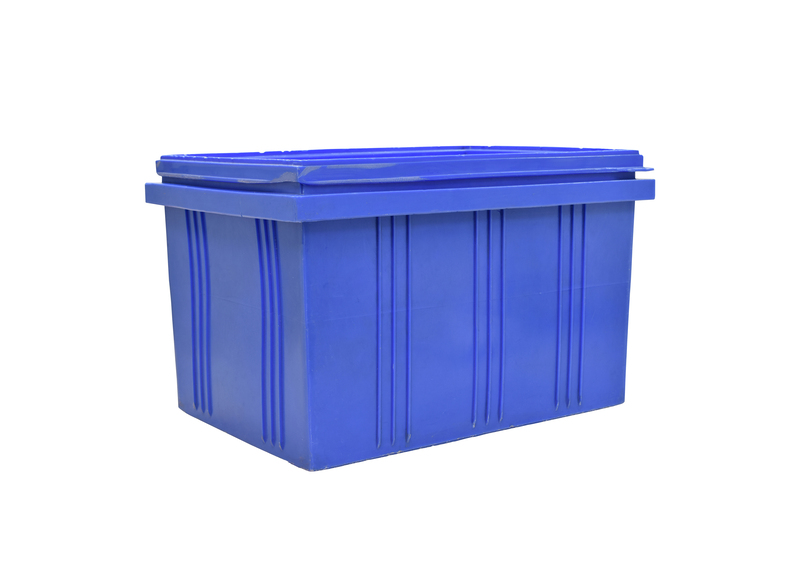Stress-Free Moving Checklist for an Organized House Relocation
Moving to a new home can be both exhilarating and daunting. From packing up belongings to settling into a new neighborhood, the process often feels overwhelming. However, with a well-structured plan and actionable steps, achieving a stress-free move is absolutely possible. This comprehensive guide will walk you through a moving checklist that ensures an organized house relocation experience from start to finish. Read on to discover expert tips and a detailed timeline for a seamless transition to your new home.
Why Organize Your Move?
Moving chaos can easily spiral without a plan. An organized move reduces the risk of misplaced items, overlooked tasks, and last-minute scrambling. By following a checklist, you systematically reduce stress and increase efficiency. The result is a relocation experience where you feel in control, prepared, and even excited for your new beginnings.

8 Weeks Before Moving - Laying the Foundation
Start Planning Early
As soon as your move is finalized, kick off your prep work.
- Create a moving folder: Use a physical binder or digital space to store estimates, receipts, important documents, contracts, and lists.
- Set a moving date: Coordinate with your landlord, realtor, or new homeowners to confirm move-in and move-out dates.
- Research professional movers: Gather estimates, read reviews, and check availability. Consider moving insurance for your valuables.
- Establish a budget: Calculate moving expenses such as movers, truck rental, supplies, utility deposits, and cleaning services.
- Notify essential parties: Inform your landlord, tenants, or real estate agents about your moving plan.
6 Weeks Before Moving - Declutter and Organize
Sort and Streamline Your Belongings
Before packing, take stock of all possessions.
- Room-by-room decluttering: Assess each area and decide what to keep, donate, sell, or discard.
- Host a garage sale or sell online: Earn extra cash by parting with unused items.
- Dispose of hazardous materials: Safely get rid of paint, batteries, and other items that can't be moved.
- Return borrowed items: Take back anything borrowed from neighbors or friends.
Decluttering now makes packing later a breeze, helping you stay organized during your move and avoid relocating unnecessary clutter.
4 Weeks Before Moving - Kick Off Packing
Gather Packing Supplies
- Stock up on boxes: Source a mix of small, medium, and large boxes from moving companies, online marketplaces, or local stores.
- Don't forget supplies: Purchase packing tape, bubble wrap, packing paper, markers, and labels.
- Specialty items: Get wardrobe boxes, mattress covers, and dish pack boxes for fragile items.
Begin Packing Non-Essentials
- Start with off-season items: Pack clothing, decor, and gear not in use.
- Label every box: Clearly mark contents and destination room to simplify unpacking.
- Document high-value items: Take photos and make lists for insurance and organization.
Update Contacts and Services
Arrange for your move with utility providers, schools, and healthcare services.
- Initiate address change: Notify the post office, banks, credit cards, insurance, and subscriptions.
- Transfer utilities: Set cut-off and start dates for electricity, water, gas, and internet at both locations.
- Plan for children and pets: Organize school transfers and pet care for moving day.
2 Weeks Before Moving - Finalize Details
Confirm Arrangements
- Double-check with movers or friends helping: Confirm times and logistics.
- Reserve elevators and parking: If you're moving in/out of an apartment, secure time slots for essential access.
- Schedule cleaning services: Book time to clean your old and/or new place.
Pack Essentials and "Open First" Boxes
Set aside items you'll need as soon as you move in. Mark these Open First for easy access:
- Bedding and linens
- Toiletries and shower curtain
- Change of clothes
- Medications and first-aid kit
- Important documents and valuables
- Children's favorite toys
- Basic kitchen supplies (plates, cups, utensils, snacks, coffee maker)
Handle Final Chores
- Defrost the fridge and freezer: Clean and dry appliances 24-48 hours before moving.
- Prepare small repair kits: Keep tools and supplies handy for last-minute fixes.
- Arrange for old keys: Collect or label any keys you'll need to hand over to new owners or tenants.
Moving Week - The Home Stretch
Pack Everything Else
This is the time to box up the remaining items. Work efficiently, focusing on one room at a time.
- Keep labeling each box.
- Set aside cleaning supplies for a final walk-through.
- Take apart large furniture (beds, desks, shelving units), keeping hardware in labeled bags taped to the furniture.
Confirm and Communicate
- Confirm date and time with all parties: Movers, building managers, and key contacts should be on the same page.
- Give directions: Provide movers with maps, parking info, and special instructions for fragile items.
Moving Day - Staying Organized and Stress-Free
Be Ready and Proactive
- Wake up early: Get a head start and have breakfast - moving can be a long day.
- Protect your property: Lay down mats or plastic sheeting to prevent floor damage.
- Do a final walkthrough: Check every cupboard, closet, and room before leaving.
- Communicate instructions: Guide movers or friends about box handling and furniture placement.
Take Care of Yourself
- Stay hydrated and keep snacks handy.
- Take breaks as needed - self-care improves the quality of your move.
After The Move - Settling In
Unpack Systematically
- Tackle "Open First" boxes: Get beds, bathroom, and kitchen set up for immediate comfort.
- Unpack one room at a time: Focus on putting away essentials before diving into decorating.
- Break down boxes and dispose of packing materials: Recycle, reuse, or give away supplies to help others who are moving.
Get to Know Your New Home
- Check safety devices: Test smoke detectors, and locate water shut-off valves and circuit breakers.
- Meet the neighbors: A friendly introduction can help you feel more at home.
- Register your vehicle and update records: Complete any final address changes for licenses, voting, and insurance.
Top Tips for a Smooth, Stress-Free Move
- Schedule downtime: Allow space for rest, especially after moving day.
- Keep valuables and crucial documents with you: Don't place passports, jewelry, medical records, or cash in moving trucks.
- Prepare for the unexpected: Minor delays or surprises are normal, so stay flexible and patient.
- Ask for help: Family, friends, or professional organizers can make a big difference.
Bonus: Moving Checklist at a Glance
- 8 Weeks Before: Research movers, set budget, begin planning.
- 6 Weeks Before: Declutter, sell/donate, return items, start packing supplies.
- 4 Weeks Before: Pack non-essentials, update address, set up utilities, confirm details.
- 2 Weeks Before: Confirm movers, pack essentials, handle repairs, arrange child/pet care.
- Moving Week: Final packing, confirm logistics, clean up old place.
- Moving Day: Direct movers, protect property, do final check, stay calm and hydrated.
- After the Move: Unpack priorities, update records, and meet neighbors.

Frequently Asked Questions about Organized House Relocation
1. How can I make my house move less stressful?
Plan ahead with a detailed checklist, declutter before you pack, label everything, keep essentials accessible, and don't hesitate to request help from loved ones or professionals.
2. What should I pack first when moving house?
Begin with items you rarely use: seasonal clothes, books, decor, and out-of-season gear. Gradually pack daily essentials last, ensuring they're easy to access during and after the move.
3. How early should I book movers?
Ideally, book four to eight weeks in advance, especially if you plan to move during peak seasons (summer, weekends, month's end).
4. How do I keep my move organized?
Label boxes by room and content, use color-coded stickers, keep an inventory sheet, and follow a timeline to ensure nothing is overlooked or rushed.
Conclusion: Enjoy Your Fresh Start!
Moving house doesn't have to spell chaos. Following a thorough, step-by-step moving checklist helps transform the process into a manageable, even enjoyable, experience. By organizing early, packing smart, and ticking tasks off as you go, you'll minimize anxiety and make the transition to your new home as smooth and stress-free as possible. Embrace the adventure, and remember that every box packed is one step closer to your exciting new chapter!
Related Keywords: stress-free house move, organized moving, relocation checklist, moving house tips, hassle-free moving experience, moving organization, moving preparation, stressless moving guide.



